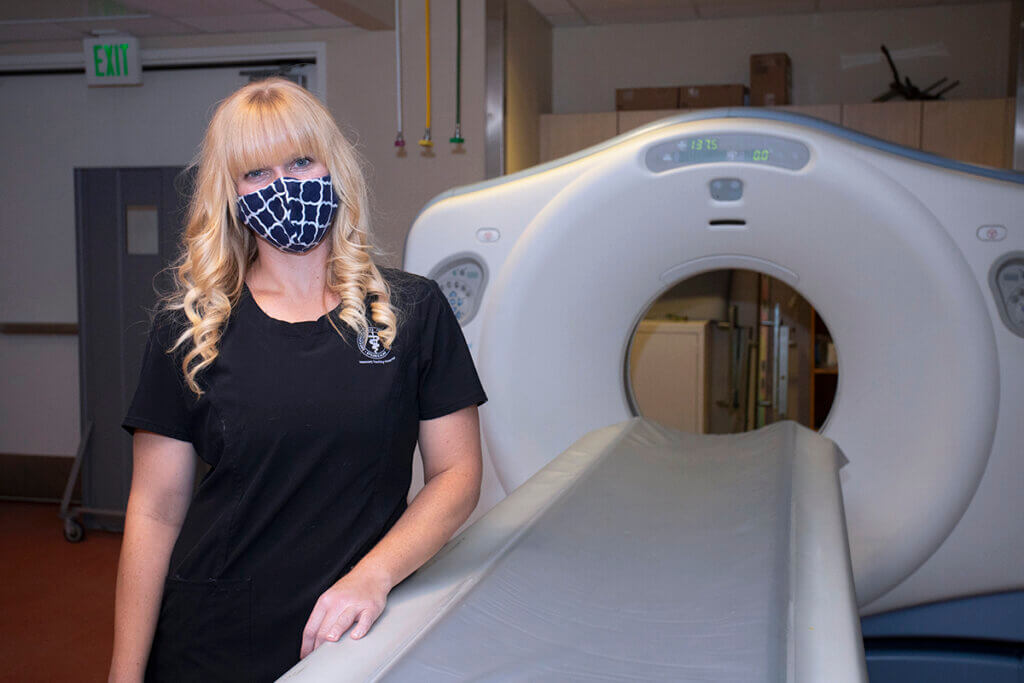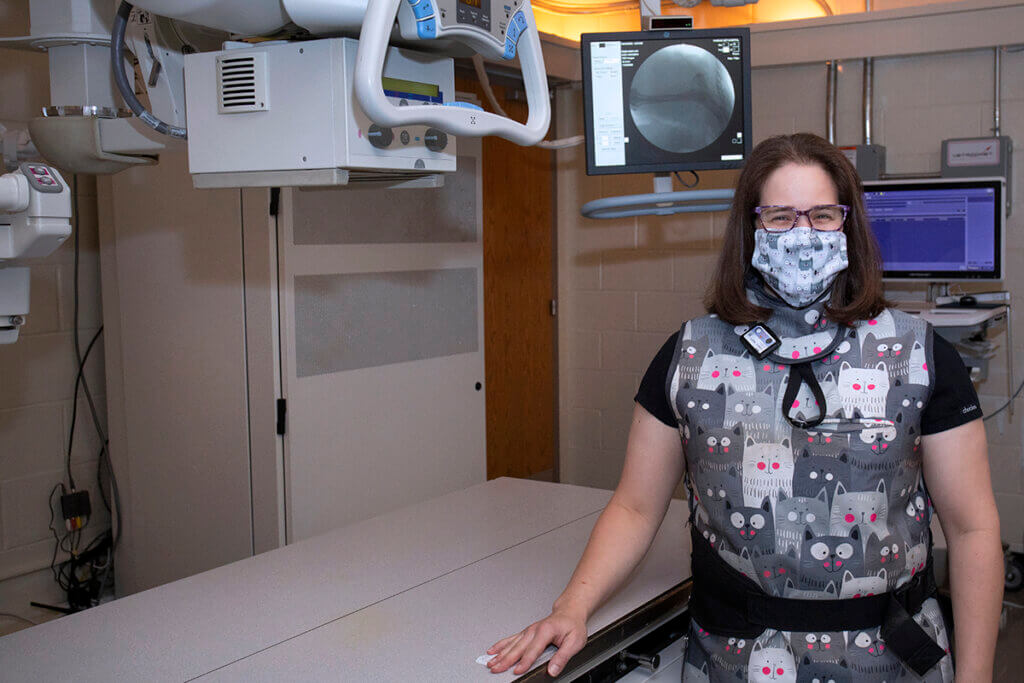The addition of Diagnostic Imaging as a recognized Veterinary Technician Specialty created an opportunity that two veterinary nurses in the Purdue University Veterinary Hospital quickly opted to pursue. Now Christy DeYoung, RVT, VTS-DI and Lydia Trott, RVT, VTS-DI are among the first in the veterinary medical profession to obtain the designation of Veterinary Technician Specialist in the field of veterinary diagnostic imaging (VTS-DI).

To achieve this recognition Christy and Lydia, who both serve as diagnostic imaging technicians in the hospital, had to complete a formal process of education, training, experience, and testing. Requirements include a minimum of 40 continuing education (CE) hours related to veterinary diagnostic imaging and advanced imaging modalities, completion of a veterinary diagnostic imaging skills form, maintenance of case record logs, and preparation of six detailed case reports.
Their success in completing those requirements enabled them to be in the first group of veterinary nurses to sit for the credentialing exam, which was administered October 21 in conjunction with the 2020 American College of Veterinary Radiology (ACVR) Virtual Meeting. By passing the exam, Lydia and Christy joined 16 others who are the first veterinary nurses (veterinary technicians) to achieve the VTS-DI certification.
“We are very proud and thrilled to have earned our VTS in diagnostic imaging! Obtaining a VTS-DI demonstrates our love for the field of diagnostic imaging, and overwhelming drive and desire to better ourselves in the field,” Christy and Lydia said. “We are excited to be a part of the first graduating class, and to work along with the founding members to help promote advancement opportunities for technologists/nurses and improve standards of excellence within diagnostic imaging.”
Christy and Lydia said the most challenging aspects of achieving the VTS-DI certification involved the amount of time required to complete the written application and to study for the exam, which amounted to hundreds of hours each of personal time. In particular, they noted that, because it was the first time that the exam was offered, the study guide was limited. “With such a large amount of knowledge to cover and in-depth physics to learn, it was a challenge to know how much of each modality to study.” The exam covered a variety of topics as well as such advanced imaging modalities as CT, MRI, ultrasound, and nuclear medicine imaging.

Lydia and Christy said they are extremely thankful for the support they received from the PVM Diagnostic Imaging family over the last year, especially from their section chief, Dr. Carrie Fulkerson, and technician supervisor, Donna Tudor. “They each spent countless hours approving case logs, reviewing reports, and answering endless questions. We are also thankful to all the residents who answered countless questions throughout the entire process and to our fellow DxI technicians for being so understanding.”
“We pursued obtaining our VTS specialty to expand our knowledge and skills so we could provide the best possible care to all our veterinary patients, from small to large to exotic animals in all modalities,” Christy and Lydia said. “With an expanded knowledge and skills set, we can promote our discipline through continuing education lectures and articles for fellow veterinary technologists/nurses. To provide the best possible care to our patients, we feel we have a responsibility to stay current in our field and to constantly be learning newer imaging modalities and techniques that are ever rapidly changing as imaging technology becomes increasingly sophisticated.”
Small Animal Hospital Veterinary Nursing Manager Megan Brashear said the college can be proud that two of the first veterinary nurses to pass the VTS-DI exam are members of the Purdue University Veterinary Hospital team. She also emphasized, “This adds ANOTHER specialty academy to our list at Purdue.” With Lydia and Christy earning the VTS-DI certification, the college now has Veterinary Technician Specialists in eleven specialty fields. The other Veterinary Technician Specialties represented in the hospital are:
- Anesthesia and Analgesia
- Cardiology
- Clinical Pathology
- Clinical Practice (Canine/Feline)
- Emergency/Critical Care
- Equine Veterinary Nursing
- Internal Medicine
- Neurology
- Ophthalmology
- Surgery
“This is an awesome accomplishment, both for Lydia and Christy as individuals, and also for us as a hospital and university,” Megan said. Congratulations Christy and Lydia!
